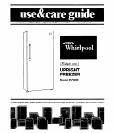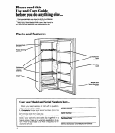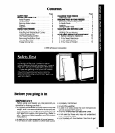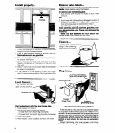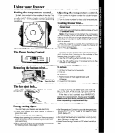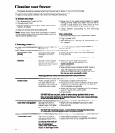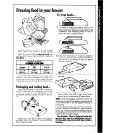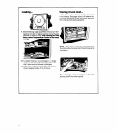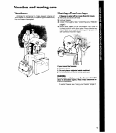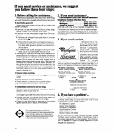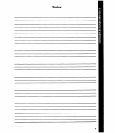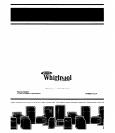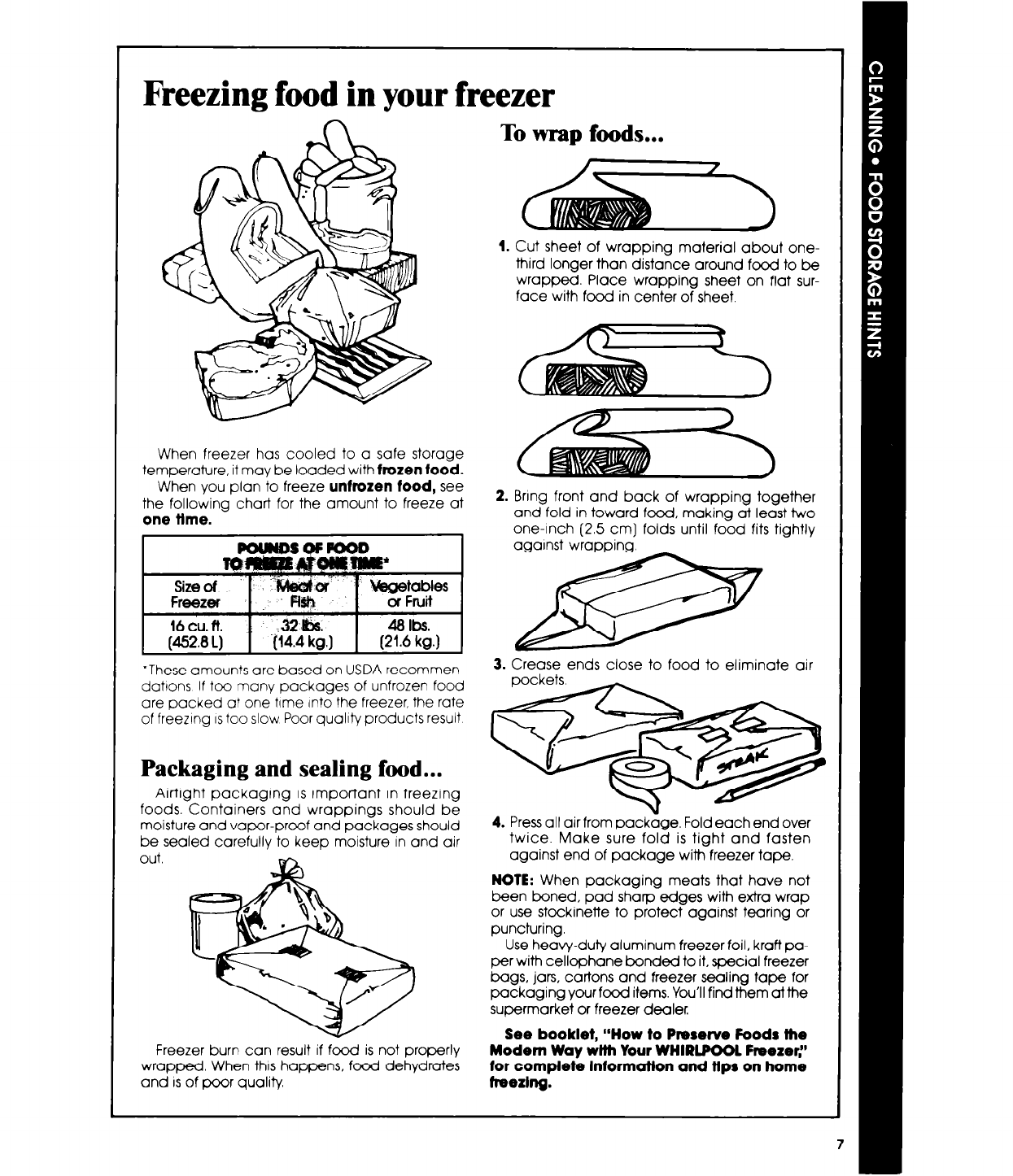
Freezing food in your freezer
To wrap foods...
When freezer has cooled to a safe storage
temperature, it may be loaded with frozen food.
When you plan to freeze unfrozen food, see
the following chart for the amount to freeze at
one ffme.
*These amounts are based on USDA recommen-
datrons If too many packages of unfrozen food
are packed at one time into the freezer, the rate
of freezing IS too slow Poor quality products result
Packaging and sealing food...
Airtight packaging is Important in freezing
foods. Containers and wrappings should be
moisture and vapor-proof and packages should
be sealed carefully to keep moisture In and air
out.
Freezer burn can result if food is not properly
wrapped When this happens, food dehydrates
and IS of poor quality
1.
Cut sheet of wrapping material about one-
third longer than distance around food to be
wrapped. Place wrapping sheet on flat sur-
face with food in center of sheet.
2. Brrng front and back of wrapping together
and fold in toward food, making at least two
one-inch (2.5 cm] folds until food fits tightlv
agarnst wrapping.
~ ’
3. Crease ends close to food to eliminate air
4. Press all air from package. Fold each end over
twice. Make sure fold is tight and fasten
against end of package with freezer tape
NOTE:
When packaging meats that have not
been boned, pad sharp edges with extra wrap
or use stockinette to protect against tearing or
puncturing.
Use heavy-duty aluminum freezer foil, kraft pa-
per with cellophane bond& to it, special freezer
bags, jars, cartons and freezer sealing tape for
packaging your food items. You’ll find them at the
supermarket or freezer dealer.
See booklet, “How to Presene Foods the
Modem Way wlth Your WHIRlPOOl Freezer,”
for complete lnformafton and ttps on home
freezlng.



